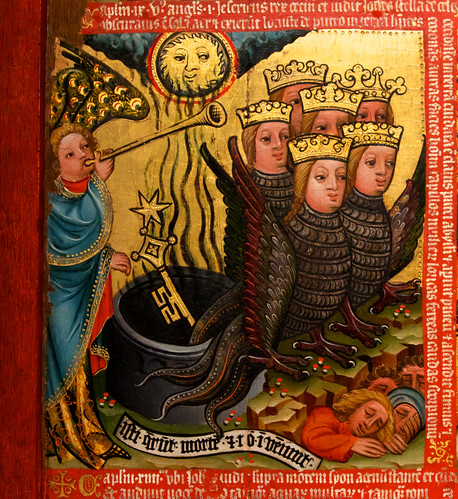We run our website the way we wished the whole internet worked: we provide high quality original content with no ads. We are funded solely by your direct support. Please consider supporting this project.
On the Language of “Revolution”
Question: The banner of your website and the thrust of much of your teaching focuses on “revolution.” While I can see a radical call in some of the sayings of Jesus, especially if he were addressing upper-middle class North Americans, I wonder if attaching revolutionary language to his teaching seems a stretch. He did not join with the Zealots of the day. He said to his captors, “Am I leading a rebellion, that you come at me with clubs and swords?” Revolutionary culture is connected with all sorts of movements, many stemming from the Enlightenment and communism that seemed to embrace ideologies of autonomy and methodologies of violence. That seems to conflict with the spirit of your own communitarian and pacifist teachings. Could you explain why you use revolutionary language?
Answer: I understand your concern about the world’s association of revolution with violence and social upheaval etc. Jesus’ kingdom certain wasn’t that. At the same time I think that the Kingdom inaugurated by Jesus was far MORE revolutionary, not less, than common examples of revolution, whether the American, French, or Russian. Everything Jesus did revolted against aspects of the culture and creation that weren’t consistent with God’s will, and thus revolted against the principalities and powers that (in a first century apocalyptic context) were believed to be behind those aspects of society and creation. And he revolted, ultimately, by not only refusing to hate his enemies, but instead to love and bless his enemies, which is the opposite of the world’s way of revolting. So I want to reclaim the most radical “revolt” word we have available and redefine it within the kingdom. This word is revolution.
The same objection has been raised about my “spiritual warfare” language, and I give the same response, since warfare language permeates the Bible, including the NT.
The Bible has a great example of using revolution/warfare language and turning it on its head to mean the opposite of what it means in the world. It’s found in the book of Revelation. John employs dozens of violent symbols from the OT and apocalyptic literature of his day and he turns them on their head to mean the opposite. [I’m in the middle of preaching a six week series on Revelation right now]. So I feel there is biblical warrant for doing the same today.
Nevertheless, you are concerned about the right things, and it just means we have to make an extra effort to be sure we are communicating the kind of revolution and warfare that is consistent with the revolution and warfare of the cross. The cross defines the revolution.
Blessings,
Greg
For more on the topic of revolution, see Greg’s book Myth of a Christian Religion: Losing Your Religion for the Beauty of a Revolution. This book introduces 12 ways that the revolution should stand against the principalities and powers of the world.
For the sermon series that was the precursor to this book, click here.
For the recent sermons from the series Rescuing Revelation where I outline how God takes revolutionary language and turns it on its head, click here.
Category: General
Tags: Enemy Love, Kingdom, Love, Non-Violence, Pacifism, Revelation, Revolution, Viva la Revolution!
Related Reading

Is Non-Violence a Key to Christian Discipleship?
For the first three centuries of the church, Christians understood that forgoing the use of violence and expressing God’s self-sacrificial love was central to discipleship. However, this mindset changed after the Church acquired power in the fourth century. Entire theological systems have been developed to support the use of coercive power. However, contrary to that…

The Cross is Revelation and Salvation
The way Christ saved us from the curse of the law was “by becoming a curse for us” (Gal. 3:13). So too, the way Christ freed us from the condemnation of sin and enabled us to “become the righteousness of God” was by becoming sin for us (2 Cor. 5:21). Getting this point is crucial…

Does the Old Testament Justify “Just War”?
Since the time of Augustine, Christians have consistently appealed to the violent strand of the Old Testament to justify waging wars when they believed their cause was “just.” (This is Augustine’s famous “just war” theory.) Two things may be said about this. First, the appeal to the OT to justify Christians fighting in “just” wars…

Podcast: Is There a Moral Difference Between Killing and Murder?
Greg argues against C.S. Lewis’ claim that not all killing is murder. http://traffic.libsyn.com/askgregboyd/Episode_0223.mp3

Anabaptist Response to the Attacks in Paris and Beirut
https://youtube.com/watch?v=paUtIl-oRpM&feature=youtu.be Our friend Bruxy Cavey, the pastor at The Meeting House in Toronto shares some thoughts on how to respond to the violence that is going on in the world. He writes: The Meeting House is a Historic Peace Church. In responding to terrorism, we don’t presume to tell governments what they should do, for…

ReKnew Update I
Greg shares an update on the ReKnew fundraiser. Hope you’ll consider joining this Kingdom movement!

